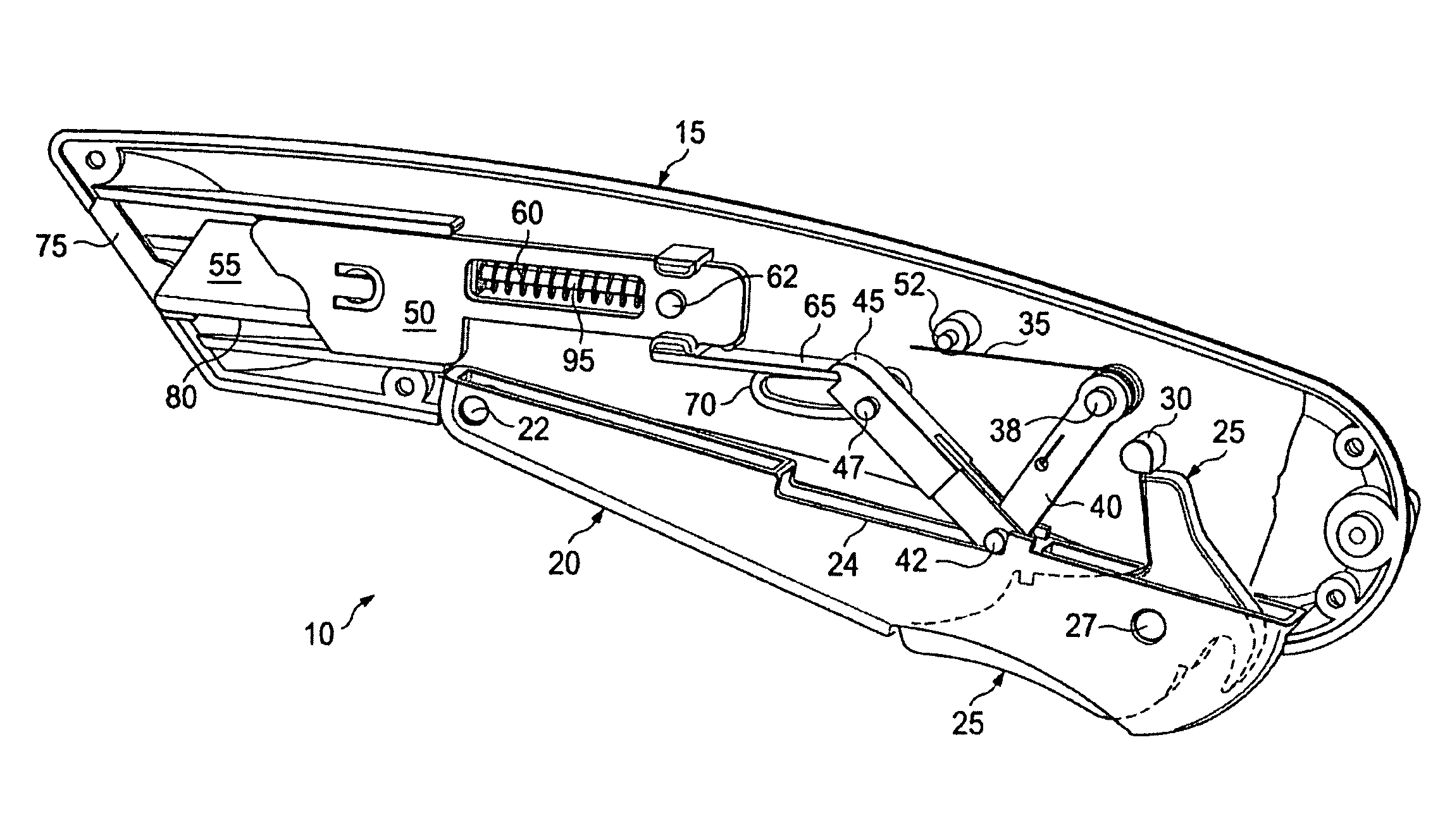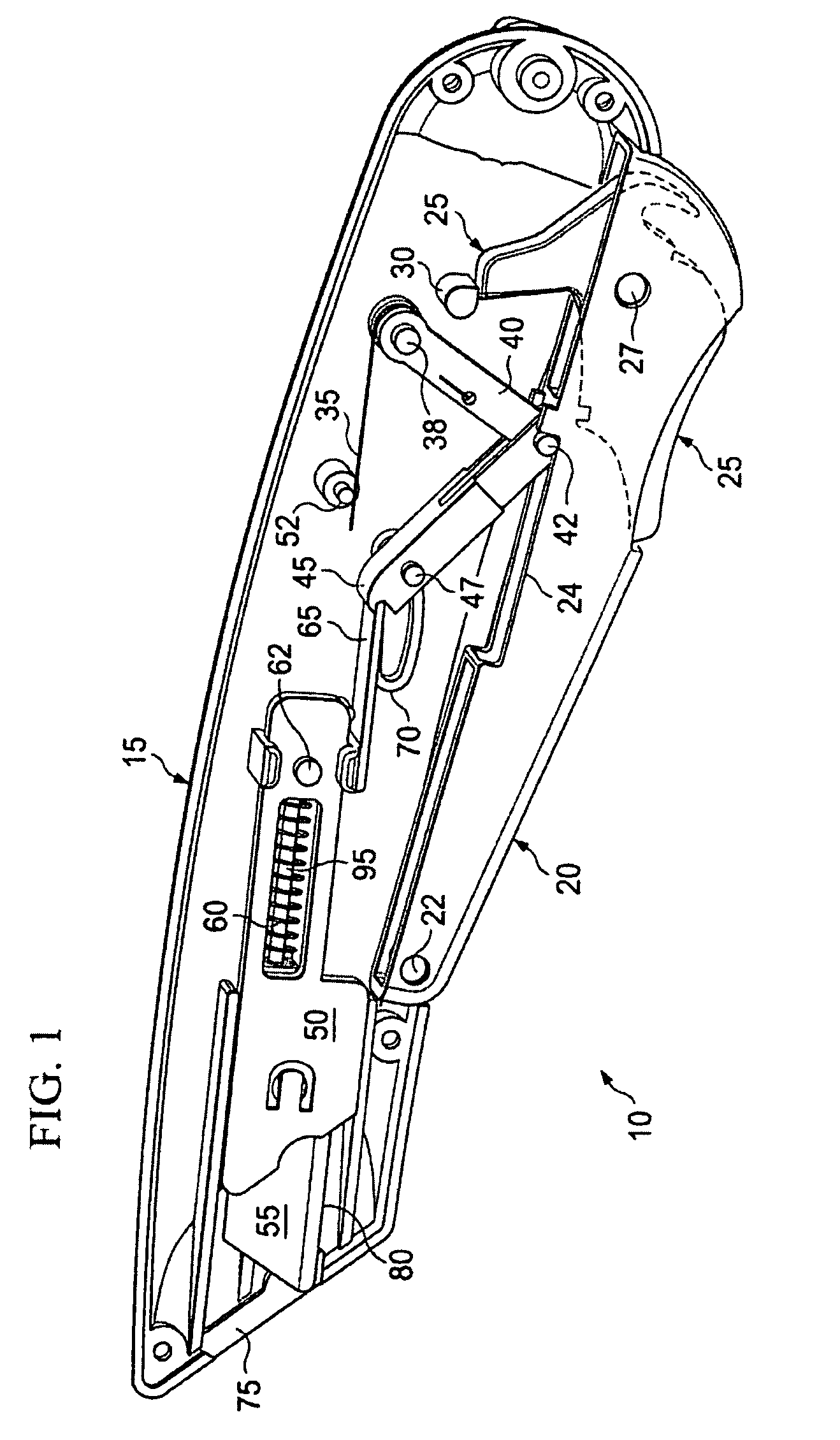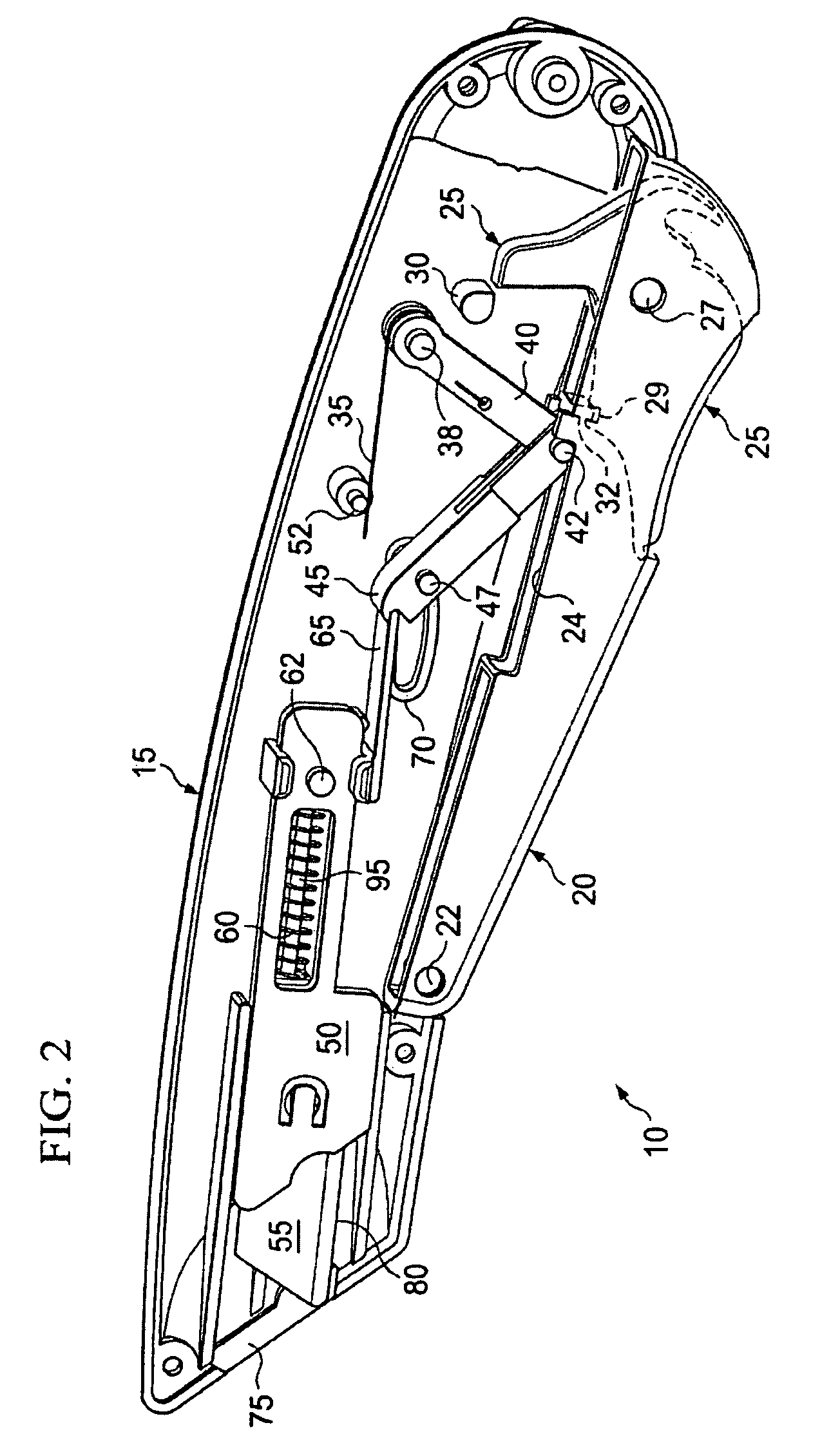Utility cutter
a utility cutter and cutting mechanism technology, applied in the direction of thrusting weapons, white arms/cold weapons, weapons, etc., can solve the problems of affecting the economic value of an individual or business enterprise, and presenting a substantial hazard to the user, other persons, or valuable materials, so as to prevent accidental blade extension, prevent the decoupling of the blade, and ensure the cutting mechanism
- Summary
- Abstract
- Description
- Claims
- Application Information
AI Technical Summary
Benefits of technology
Problems solved by technology
Method used
Image
Examples
Embodiment Construction
[0023]The figures and following description illustrate and explain a utility cutter 10, which may be used to cut rigid or semi-rigid materials, such as, for example, corrugated board, cardboard or other paper products, rubber, plastic, Styrofoam, or any other appropriate material. The utility cutter 10 is typically a handheld device operated by either a left-handed or right-handed user with equal ease. In some implementations, the utility cutter 10 allows the user to carry, transport, or otherwise handle the cutter 10 in a back position, whereby a sharpened blade of the cutter 10 is locked in a retracted position within a protective housing or handle. The user may, as appropriate, set the cutter 10 into an unlocked position via an integral trigger lock within a blade trigger. Further, the user may, substantially simultaneous to placing the utility cutter 10 into the unlocked position, easily and ergonomically actuate the blade trigger to extend the sharpened blade from the protectiv...
PUM
 Login to View More
Login to View More Abstract
Description
Claims
Application Information
 Login to View More
Login to View More - R&D
- Intellectual Property
- Life Sciences
- Materials
- Tech Scout
- Unparalleled Data Quality
- Higher Quality Content
- 60% Fewer Hallucinations
Browse by: Latest US Patents, China's latest patents, Technical Efficacy Thesaurus, Application Domain, Technology Topic, Popular Technical Reports.
© 2025 PatSnap. All rights reserved.Legal|Privacy policy|Modern Slavery Act Transparency Statement|Sitemap|About US| Contact US: help@patsnap.com



